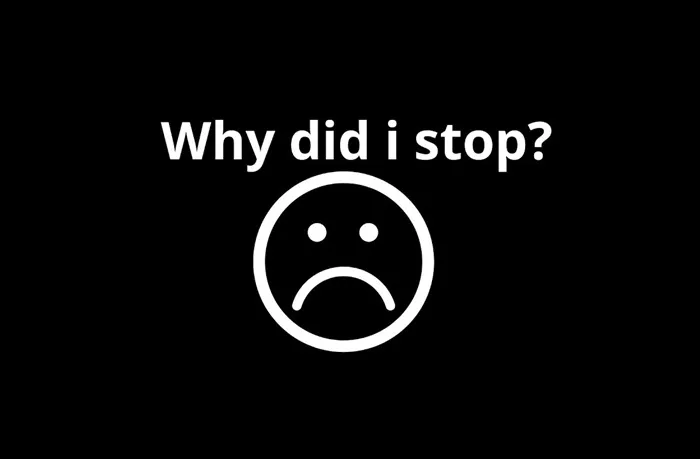Blogging has been an essential platform for self-expression, sharing knowledge, and even building a brand. However, despite its popularity and numerous benefits, many bloggers eventually face challenges that lead them to quit. I’m one of those individuals. While my blogging journey was filled with invaluable lessons and memorable moments, it became clear that leaving it behind was the right decision for me. Here’s an in-depth look at why I quit blogging and what others might learn from my experience.
The Initial Allure of Blogging
Blogging has an irresistible appeal for creative individuals, aspiring entrepreneurs, and hobbyists. For me, it was a combination of:
Creative Freedom: The ability to write about topics I was passionate about.
Community Building: Engaging with like-minded individuals and readers who shared similar interests.
Monetization Opportunities: The potential to earn through advertisements, sponsorships, and affiliate marketing.
Starting out, I was excited by the idea of influencing others while building a personal brand. Like many others, I envisioned consistent growth, a loyal audience, and financial rewards.
The Reality of Blogging
The dream quickly gave way to reality, and I realized that blogging was not as simple as it seemed. Some key challenges emerged:
Content Saturation: The blogosphere is incredibly crowded. Standing out required not only exceptional content but also relentless efforts in marketing and networking. It became evident that producing quality articles was only part of the job.
Time-Consuming: Writing a well-researched blog post could take hours, sometimes days. Coupling that with promotion, SEO, and engagement, blogging became a full-time job, which clashed with other commitments.
Pressure to Stay Relevant: Trends evolve rapidly. Staying relevant required continuous learning, experimenting with formats, and adapting to new technologies.
Unpredictable Revenue: Despite considerable effort, income from blogging was inconsistent. The financial uncertainty became stressful, especially when I compared the time invested with the monetary returns.
The Emotional Strain
Over time, the demands of blogging took a toll on my mental and emotional well-being:
Burnout: Writing regularly while maintaining originality and quality led to creative exhaustion. The pressure to meet self-imposed or external deadlines became overwhelming.
Criticism and Negativity: Blogging opens you to public scrutiny. While constructive criticism is valuable, facing negative comments or even trolling was emotionally draining.
Imposter Syndrome: The constant comparison with more successful bloggers made me doubt my abilities, leading to self-doubt and insecurity.
Shifting Priorities
Life is dynamic, and priorities change. As much as I enjoyed blogging, other aspects of life demanded my attention:
Career and Personal Growth: I found more fulfillment and stability in pursuing a full-time career aligned with my expertise. It became challenging to balance work and blogging.
Personal Relationships: The time spent blogging sometimes came at the expense of nurturing personal relationships. Realizing this imbalance prompted a shift in focus.
New Interests: Over time, my interests evolved, and the topics I once wrote about no longer felt as exciting or relevant.
The Rise of Other Platforms
When I started blogging, it was a dominant medium for online content. However, newer platforms like social media, video content, and podcasts began gaining traction, offering alternative ways to share thoughts and connect with audiences.
Ease of Use: Platforms like Instagram, YouTube, and TikTok required less maintenance and offered faster engagement than traditional blogs.
Algorithm Advantage: These platforms actively promoted content, reducing the dependency on SEO and marketing.
Shifting to these formats allowed me to continue expressing myself without the burdens associated with blogging.
Lessons Learned from Blogging
Although I chose to quit, my blogging journey wasn’t without its benefits:
Improved Writing Skills: Blogging honed my ability to articulate thoughts clearly and concisely.
Understanding Online Marketing: I gained valuable insights into SEO, audience engagement, and analytics that proved useful in other ventures.
Building Resilience: Overcoming challenges and criticism strengthened my determination and adaptability.
Networking Opportunities: Blogging introduced me to a network of inspiring individuals and professionals who enriched my perspective.
What Quitting Blogging Taught Me
Walking away wasn’t easy, but it brought clarity:
Focus on What Matters: Quitting allowed me to invest time and energy into pursuits that aligned with my long-term goals and personal growth.
Quality Over Quantity: The experience emphasized the importance of meaningful contributions over chasing trends or popularity.
Embracing Change: Letting go of blogging reaffirmed that it’s okay to pivot when something no longer serves your purpose or happiness.
Should You Quit Blogging?
If you’re considering quitting blogging, reflect on the following questions:
- Does blogging align with your current goals and passions?
- Are you feeling more drained than fulfilled by the process?
- Have you explored alternative platforms or formats that might suit your needs better?
It’s important to remember that quitting isn’t a failure—it’s a decision to prioritize what truly matters to you.
Conclusion
Blogging can be a rewarding experience, but it’s not for everyone, and that’s okay. For me, quitting blogging wasn’t about giving up; it was about embracing change and focusing on what made me happiest. The lessons I learned during my blogging journey remain valuable, and I carry them forward into every new chapter of my life.
If you’re at a crossroads, take the time to assess your priorities and make the decision that serves you best. Whether you continue or move on, the experience itself is invaluable.
Related Topics
- What Is the Purpose of Blogging?
- How Much Does Blogging Cost?
- How Long Does It Take To Learn Blogging?

